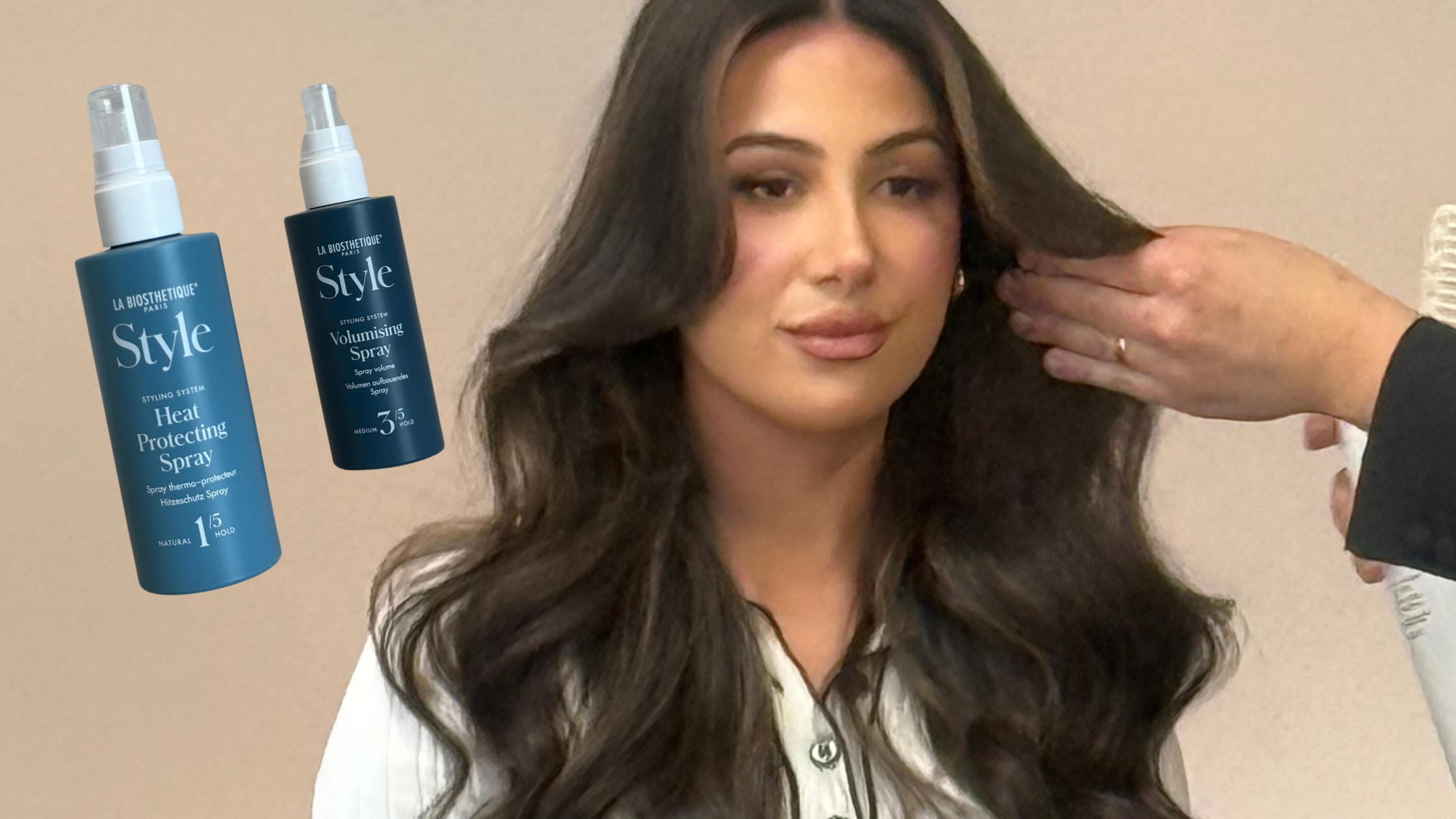
More than weight loss: Is Ozempic affecting your hair too?
From red carpets to Instagram feeds, Ozempic has become the go-to "secret" weapon for those chasing quick gains when it comes to dramatic body transformations. But there’s one side effect that might be going unnoticed: hair loss.
Traditionally used to stabilise blood sugar levels in people with type 2 diabetes, Ozempic rose in popularity after it was discovered it could also help with managing weight too, and it’s been trending ever since.
Although hair loss isn’t listed as a direct side effect of Ozempic, some people taking GLP-1 medications such as Ozempic and sister medication Wegovy have reported hair loss and shedding, along with weight loss.
@drsamanthaellis It’s definitely a thing. #ozempic #ozempicface #zepbound #mounjaro #wegovy #semaglutide #glp1 #tirzepatide #glp1forweightloss #hairloss #hairshedding #telogeneffluvium #hairlossprevention ♬ original sound - Dr. Sam Ellis - Dermatologist
Luckily, cases are low, and experts believe this is likely due to physical stressors, and not a direct side effect of the drugs, however, clinical trials for Wegovy showed 3% of people reported hair loss, compared to 1% of those who received a placebo.
In a study of another type 2 diabetes injectable Mounjaro (tirzepatide) – approved recently in Australia by the TGA for chronic weight management – those who took the medication also experienced hair loss up to 5.7%, while only 1% given a placebo experienced the same issue.
When the body’s system is disrupted or stressed, or nutrition absorption is affected due to medication or lifestyle changes, hair follicles can enter a resting phase, known as telogen effluvium, leading to thinning or shedding. Additionally, changes in blood sugar levels can affect the health of hair follicles, further contributing to hair loss.
While the pros might outweigh the cons for many Ozempic devotees, we understand how distressing hair loss can be. The good news is there are ways to help manage hair loss and shedding, due to lifestyle, hormonal, or medical reasons.
How to manage hair shedding
Invest in a targeted hair care routine
For those with specific hair issues it’s important to choose the right haircare products. Our new Hair Loss range by La Biosthetique is a great place to start. We recommend beginning with a topical three-month cycle of La Biosthetique Anti-Age Ampoules to kick-start your hair back into the growth phase and also using the Hair Loss Scalp Control Lotion to tackle the "root" cause of hair loss. Other products in the range will also support your hair needs. Minimise heat styling or use heatless styling to avoid excess stress on hair strands. If you have to use styling tools, always apply a heat protectant first.
Add density with hair extensions
Following this, depending on the strength of your hair strands, our styling team can recreate the missing structure with corrective Great Lengths hair extensions. These extensions will help hide and support the new growth as it comes through, giving you both immediate confidence and long-term results. The extensions we use are completely safe, and won’t damage your hair.
Choose a hair-healthy diet
Incorporate nutrition-rich foods that promote hair growth and hormone balance.
B vitamins: Essential for overall hair, skin, and nail health. Try eating more fish, meat, eggs, and leafy greens. Biotin, a B vitamin, is a powerhouse when it comes to promoting hair growth and thickness. If you can’t get from your diet alone, try taking a quality hair, skin, nails supplement that contains Biotin, Iron and Zinc.
Vitamin C: Crucial for collagen production, and strength and elasticity of the skin and hair. You can find it in citrus fruits, capsicum, and strawberries.
Vitamin D: This vitamin plays a part in hair follicle cycling and skin health. Spending a short amount of time in the sun during low UV hours, and consuming vitamin D-rich foods like fatty fish and fortified dairy products can help maintain adequate levels.
Vitamin E: This vitamin acts as an antioxidant and helps protect the skin from damage. It can be found in nuts, seeds, and spinach.
Omega-3 fatty acids: These healthy fats support scalp health, promote hair growth, and contribute to smooth, glowing skin. Sources include fatty fish, flaxseeds, and walnuts.
Manage your stress levels
Excess stress can contribute to hair loss. Try incorporating calm, mood boosting routines like breathwork, yoga, and meditation, and reducing stress triggers to help promote healthier regrowth. Getting enough sleep is equally important. Keeping stress in check helps your hair – and your body – stay balanced too.
As always, it’s important to consult with a trained medical professional. If you have questions about your hair’s condition and Ozempic, or other hair loss-related queries, reach out to our team. We’re here to support you through every aspect of your hair journey.



